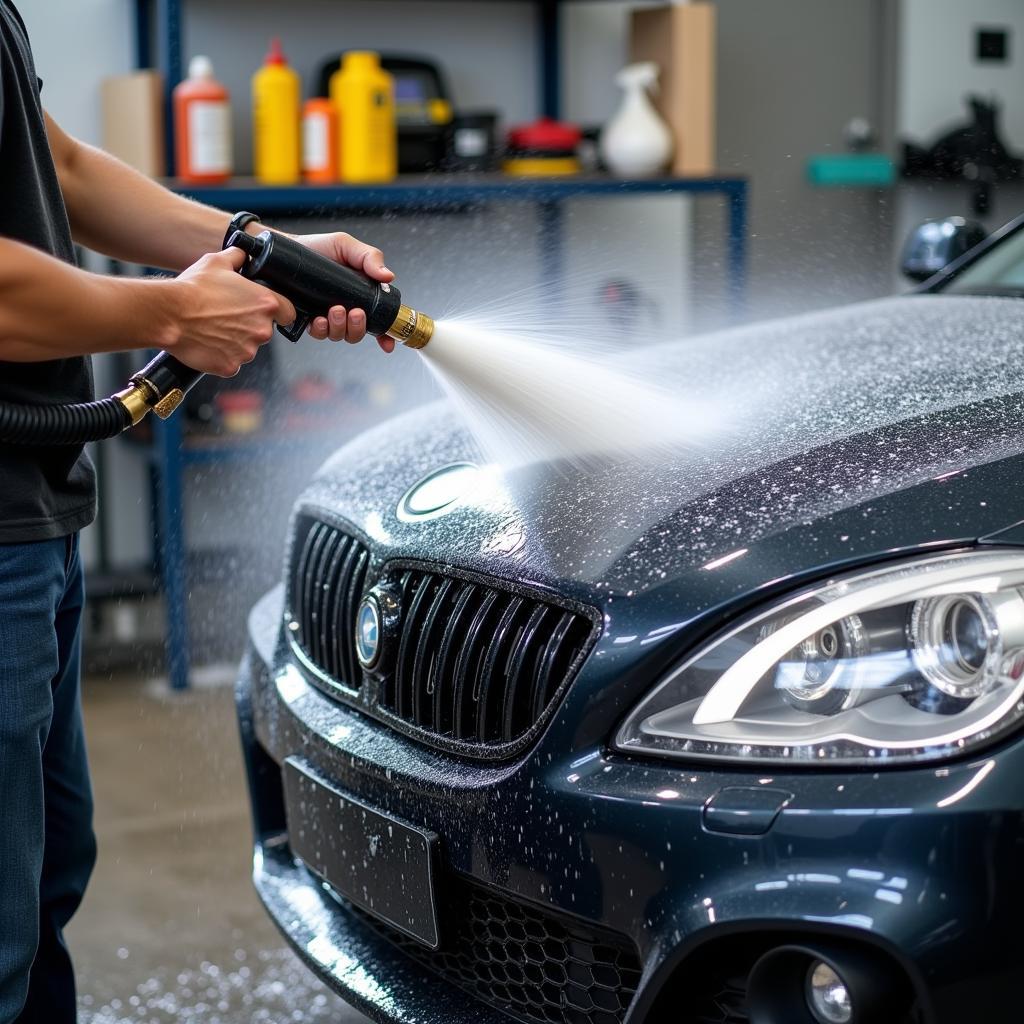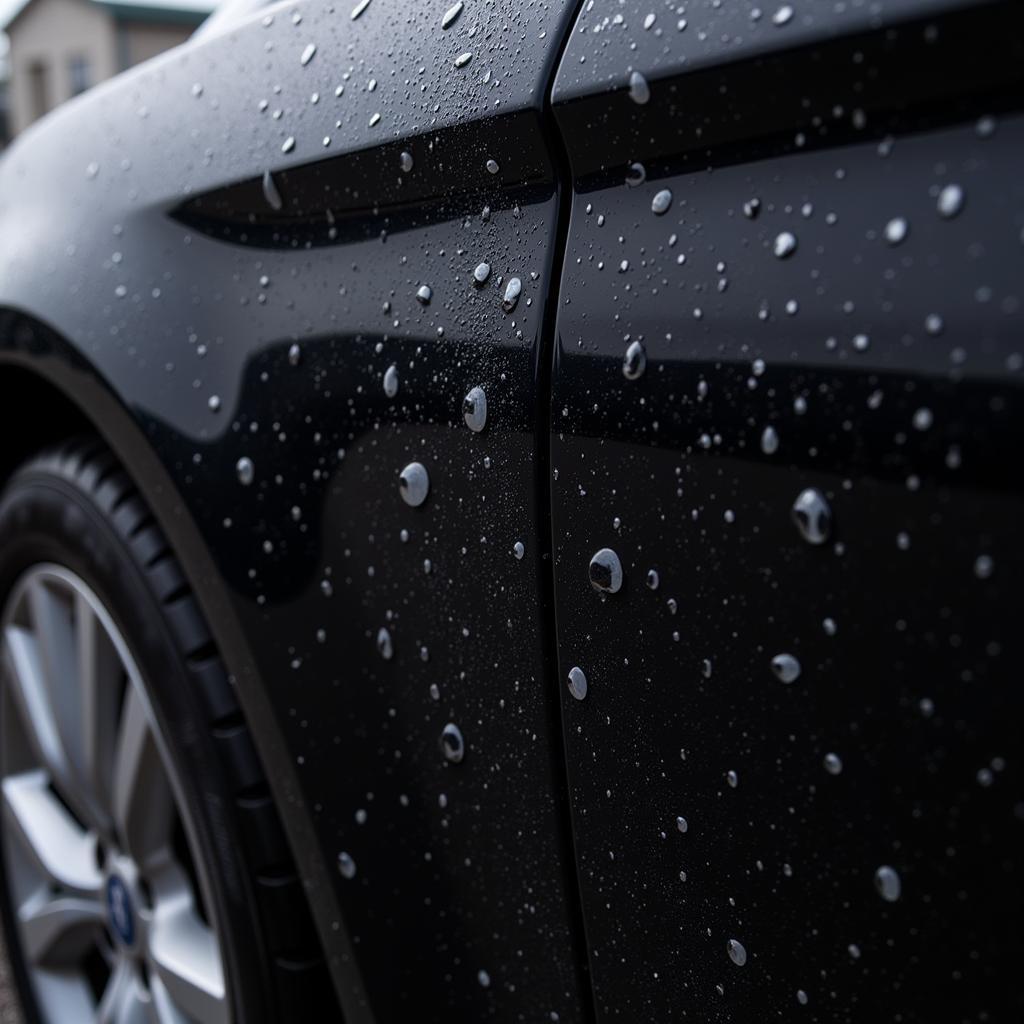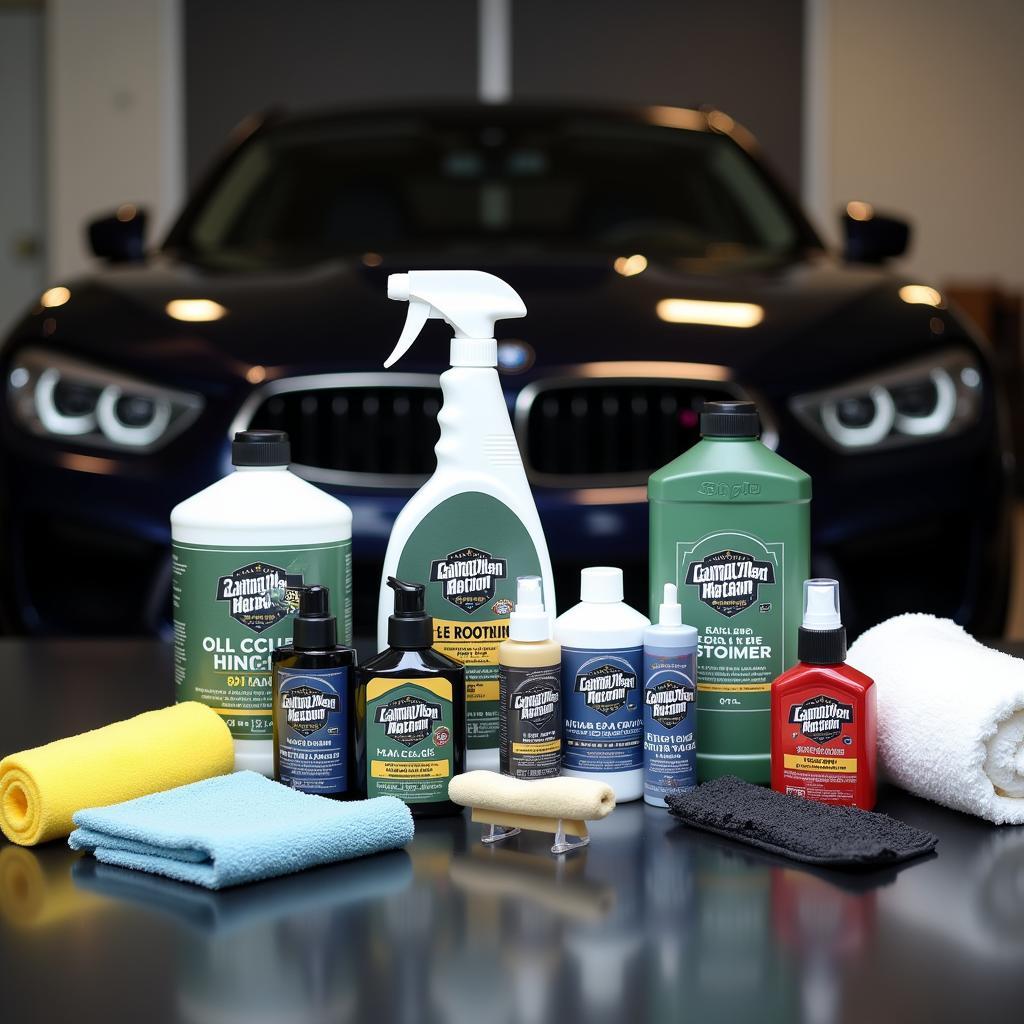When detailing a car, choosing the right “sater” (likely a typo for “water”) is crucial for a flawless finish. Using the wrong kind of water can leave spots, streaks, and even damage your car’s paint. This guide will walk you through the best water options for detailing, along with other important considerations to achieve professional-level results.
Why Water Quality Matters in Car Detailing
Many people overlook the importance of water quality in car detailing, focusing primarily on the cleaning products. However, water plays a significant role in every stage of the process, from the initial wash to the final rinse. Hard water, containing high levels of minerals like calcium and magnesium, can leave behind unsightly water spots that are difficult to remove. These spots can dull the shine of your paintwork and detract from the overall appearance of your vehicle. Soft water, on the other hand, is free from these minerals and helps create a spot-free finish.
The Best Water for Car Detailing: Filtered or Distilled?
So, what’s the best water to use? Distilled or deionized water is the gold standard for car detailing. By removing all minerals and impurities, it guarantees a spot-free rinse every time. However, distilled water can be expensive and not readily available. A more practical option is filtered water. A good quality water filter can remove most of the minerals and contaminants that cause water spots.
 Filtered Water for Car Detailing
Filtered Water for Car Detailing
Using a Water Spot Remover
Even with careful water selection, some water spots might still appear, especially in areas with hard water. This is where a dedicated water spot remover comes into play. These products are designed to dissolve mineral deposits and restore the paint’s clarity.
Understanding Hard Water and Its Effects
Hard water is the enemy of a perfect detail. The minerals it contains can interfere with soap and shampoo, reducing their effectiveness and leaving a residue. This residue can also bond with wax and sealant, hindering their ability to protect the paintwork.
 Hard Water Spots on a Car
Hard Water Spots on a Car
Testing Your Water Hardness
You can easily test your water hardness using a simple test kit available at most hardware stores. Knowing your water hardness helps you choose the right detailing approach, including the best type of water filter or water softener.
Beyond Water: Other Essential Detailing Tips
While water quality is paramount, other factors contribute to a professional detailing job. Using the right wash mitt, microfiber towels, and quality car shampoo are essential for achieving a flawless finish.
The Two-Bucket Wash Method
The two-bucket wash method is a crucial technique. One bucket holds the soapy water, and the other holds clean rinse water. This prevents cross-contamination, minimizing the risk of swirling and scratching the paint.
Choosing the Right Detailing Products
Selecting the right detailing products, from car shampoo and wax to sealant and tire dressing, is essential for achieving a showroom shine. Consider your car’s paint type and condition when making your choices.
 Car Detailing Products Setup
Car Detailing Products Setup
Conclusion: Achieving a Spotless Shine
Choosing the right water—ideally filtered or distilled—is fundamental to successful car detailing. By understanding the impact of water hardness and employing the proper techniques and products, you can achieve a professional-level, spot-free shine that makes your car look its best. Remember, attention to detail is key, and starting with the right water sets the foundation for a perfect finish.
FAQs
- Can I use tap water for car detailing? While you can use tap water, it’s not ideal, especially if you have hard water.
- What’s the difference between filtered and distilled water? Filtered water removes most impurities, while distilled water removes all of them.
- How often should I detail my car? Detailing your car every 3-6 months is generally recommended.
- What’s the best way to dry my car after washing? Use high-quality microfiber drying towels to minimize scratching.
- Can I detail my car in direct sunlight? Avoid detailing in direct sunlight, as it can cause products to dry too quickly.
- How do I remove stubborn water spots? Use a dedicated water spot remover.
- What’s the importance of using a clay bar? A clay bar removes embedded contaminants that washing can’t.
You may also find these other articles helpful: “Choosing the Right Car Shampoo”, “The Ultimate Guide to Car Waxing”, and “Protecting Your Car’s Paint with Sealant”.
Need help? Contact us on WhatsApp: +1(641)206-8880, Email: [email protected]. We have a 24/7 customer support team.

Leave a Reply